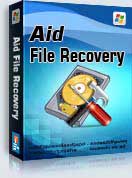Windows 10 BSOD Kernel-Power - data recovery from Windows 10/windows7/windows 8 hard drive ssd usb flash drive micro sd card , best data recovery software help you recover MS word,excel, pictures, music, video files from Windows 10 BSOD Kernel-Power
Use "unformat" to recover data from Windows 10 BSOD Kernel-Power laptop after quick format,full format,accidentally formatted,reformatting,High-level formatting,Low-level formatting.
Use "recover partition" to recover files from Windows 10 BSOD Kernel-Power laptop partition,lost partition,changed ,damaged partition.And if the size or position of partition is changed by format,It can not recover with "unformat"so you can use "recover partition"mode.
Use "undelete" to recover deleted files from Windows 10 BSOD Kernel-Power laptop after Virus attack,Recycle bin clear,disk cleanup,Press shift del by mistake,permanently empty recycle bin,shift delete ,accidentally deleted by a mistake.
Use "Full Scan" to recover data from Windows 10 BSOD Kernel-Power which can not be found with "undelete" and "unformat" and "recover partition",after showing an error,display as raw file system,unformatted,unknown partition,unpartitioned,needs to be formatted,or the file system is not exfat,not fat32,not ntfs.
"Windows 10 BSOD Kernel-Power", I'm getting random BSODs in Windows 10. The Windows event viewer is just showing me Kernel-Power. This issue has persisted in multiple complete reinstalls of Windows 8, 8.1 and 10. It is highly random, sometimes it doesn't happen for 2-3 days, other times it happens within seconds of every restart as soon as Windows boots up. I'm mentioning my configuration below: (please keep in mind that it's a laptop and not a desktop) HP Envy 14 Core i5 4200U 4GB RAM Intel HD Graphics 4400/Nvidia GT740M 750GB HDD + 24GB SSD So far I've ruled out RAM and HDD. RAM through memtest (16 cycles so far and 8+ hours of testing, 0 errors) and HDD because I tried installing Windows on both the SSD and HDD, and the issue persisted nonetheless.
Aidfile Recovery Software Keyfeature
support FAT32 EXFAT NTFS and RAW file system
support Win32 (32 bits) and Win64 (64 bits)
support Microsoft Windows 7 Enterprise,Microsoft Windows 7 Home Premium (32/64 bits),Microsoft Windows 7 Professional 64-bit Edition,Microsoft Windows 7 SP1,Microsoft Windows 7 Starter,Microsoft Windows 7 Ultimate 64-bit Edition,Windows 7 32 bit and Windows 7 64 bit.Windows 8 64-bit Edition,Windows 8 Enterprise,Windows 8 Pro 64-bit Edition,Windows 8.1 64 bit Edition,Windows Phone 8.1,Windows 8 32 bit and Windows 8 Pro 64 bit.Microsoft Windows 10 Enterprise,Microsoft Windows 10 Home Premium (32/64 bits),Microsoft Windows 10 Professional 64-bit Edition,Microsoft Windows 10 SP1,Microsoft Windows 10 Starter,Microsoft Windows 10 Ultimate 64-bit Edition,Windows 10 32 bit and Windows 10 64 bit
Desktop & laptops Ultrabook:HP Pavilion,HP Compa,Alienware Alpha,Lenovo ThinkCentre,Lenovo IdeaCentre,Dell Inspiron,Dell XPS,Sony VAIO,Acer Aspire,Asus Transformer,Dell Latitude,Samsung Ativ Book,Asus VivoBook,HP Envy,Lenovo IBM ThinkPad,Lenovo IdeaPad Yoga,Microsoft Surface,Toshiba Satellite
MS Office document (Word, Excel, PowerPoint, Outlook) types (doc, docx, ppt, pptx, xls, xlsx, pst, etc.),photos (JPG, PNG, ICON, TIF, BMP, RAF, CR2, etc.), videos and audios (MPG, MP4, MP3, MTS, M2TS, 3GP, AVI, MOV, RM, RMVB, etc.), compressed files (rar, zip, etc.), PE files (exe, dll, lib, etc.) and so on.

